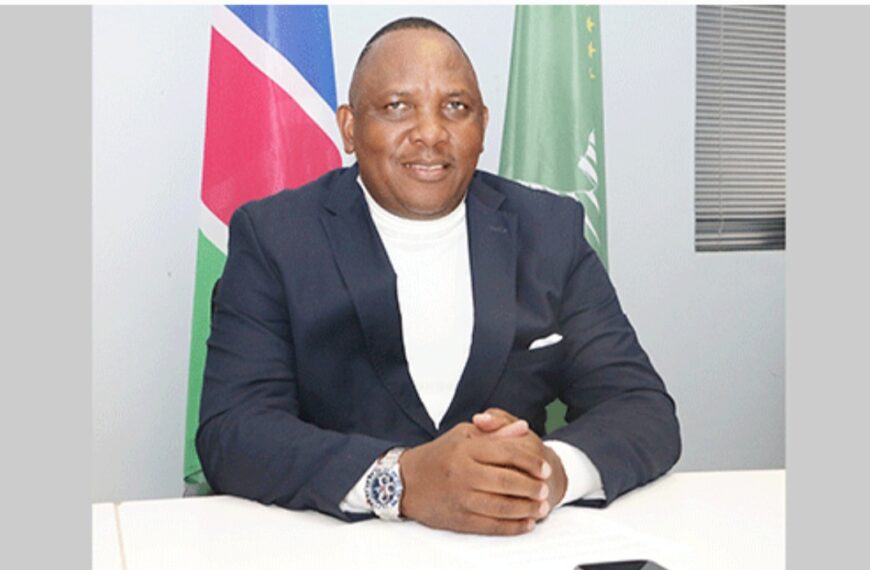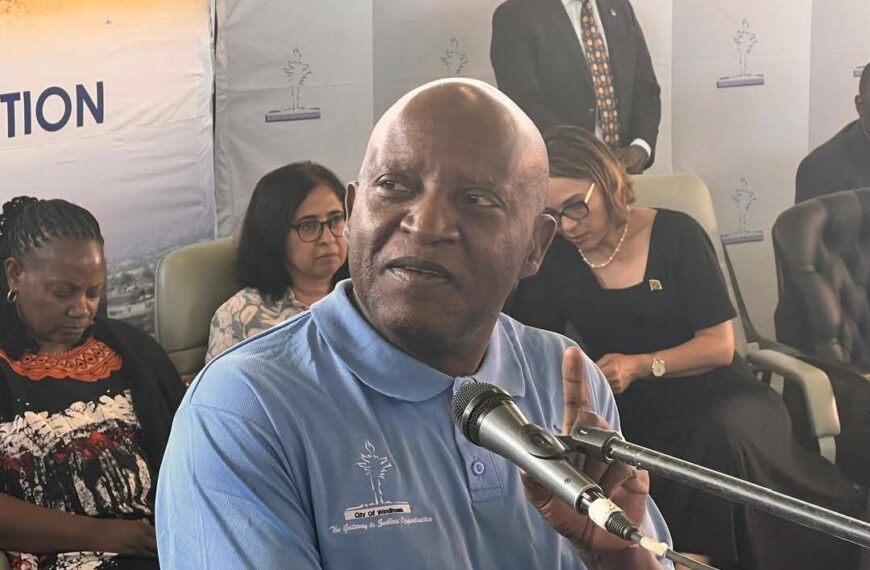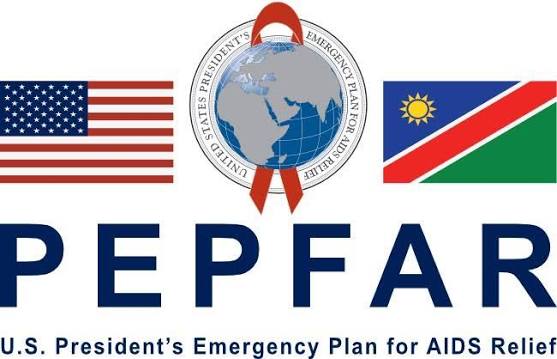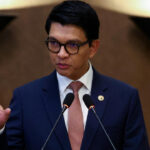
The Ministry of Health and Social Services (MoHSS) has launched its Strategic Plan for 2025/26–2029/30 alongside the Universal Health Coverage (UHC) Policy, reaffirming its commitment to deliver quality healthcare to all Namibians, regardless of income or location.
The launch marks a significant milestone in strengthening Namibia’s health system and ensuring no citizen is left behind in accessing essential services.
Speaking at the event, Health Minister Dr. Luvindao said the Ministry’s goal is to make “World Class Health for All” a reality by improving access, quality, and equity in healthcare delivery.
Over the past years, Namibia has recorded steady progress. The country’s Health-Adjusted Life Expectancy has improved from 47 to 56 years, and the UHC service coverage index increased from 39% in 2000 to 63% in 2024. Namibia also received WHO Bronze and Silver-tier certification for strides made in eliminating mother-to-child transmission of HIV and hepatitis B. Importantly, out-of-pocket spending has remained below the WHO threshold — a sign of strong financial protection for citizens.
Despite these achievements, challenges such as workforce shortages, infrastructure gaps, and the rising burden of diseases persist.
The newly launched UHC Policy provides a framework for equitable access to health and social services without financial strain. The Strategic Plan, on the other hand, offers a clear operational roadmap — setting measurable goals, timelines, and resource plans to drive progress.
The plan is built around three core pillars:
People’s Well-being – Expanding access to promotive, preventive, curative, and rehabilitative care, with a focus on maternal, child, and adolescent health.
Operational Excellence – Modernizing infrastructure, digital systems, and supply chains, and introducing a health regulatory agency to ensure quality and safety.
Talent Management – Investing in training, equitable deployment, and retention of skilled health professionals.
By 2030, Namibia aims to reduce maternal and child mortality, sustain progress in the fight against HIV, TB, and malaria, and strengthen digital and infrastructure capacity across the health sector.
Dr. Luvindao emphasized that successful implementation will require collective effort and a whole-of-society approach. The Ministry will adopt results-based budgeting and a robust monitoring and evaluation system to ensure transparency and accountability.
“Together, these policies are our promise to every Namibian — to build a health system that protects, heals, and empowers,” Dr. Luvindao said.



























